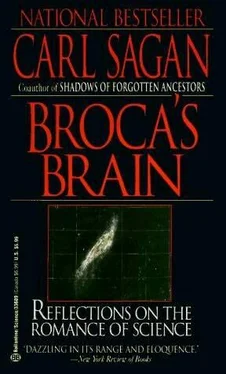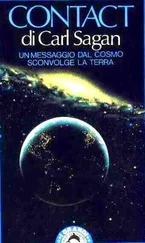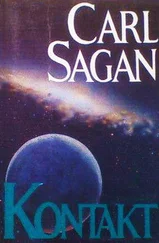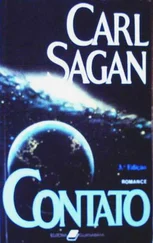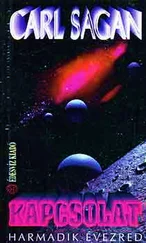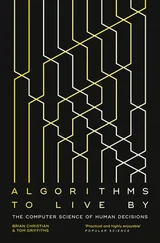Carl Sagan - Broca's Brain - The Romance of Science
Здесь есть возможность читать онлайн «Carl Sagan - Broca's Brain - The Romance of Science» весь текст электронной книги совершенно бесплатно (целиком полную версию без сокращений). В некоторых случаях можно слушать аудио, скачать через торрент в формате fb2 и присутствует краткое содержание. Жанр: Физика, на английском языке. Описание произведения, (предисловие) а так же отзывы посетителей доступны на портале библиотеки ЛибКат.
- Название:Broca's Brain: The Romance of Science
- Автор:
- Жанр:
- Год:неизвестен
- ISBN:нет данных
- Рейтинг книги:3 / 5. Голосов: 1
-
Избранное:Добавить в избранное
- Отзывы:
-
Ваша оценка:
- 60
- 1
- 2
- 3
- 4
- 5
Broca's Brain: The Romance of Science: краткое содержание, описание и аннотация
Предлагаем к чтению аннотацию, описание, краткое содержание или предисловие (зависит от того, что написал сам автор книги «Broca's Brain: The Romance of Science»). Если вы не нашли необходимую информацию о книге — напишите в комментариях, мы постараемся отыскать её.
Broca's Brain: The Romance of Science — читать онлайн бесплатно полную книгу (весь текст) целиком
Ниже представлен текст книги, разбитый по страницам. Система сохранения места последней прочитанной страницы, позволяет с удобством читать онлайн бесплатно книгу «Broca's Brain: The Romance of Science», без необходимости каждый раз заново искать на чём Вы остановились. Поставьте закладку, и сможете в любой момент перейти на страницу, на которой закончили чтение.
Интервал:
Закладка:
But we will not know the outcome of such a search, much less the contents of messages from interstellar civilizations, if we do not make a serious effort to listen for signals. It may be that civilizations are divided into two great classes: those that make such an effort, achieve contact and become new members of a loosely tied federation of galactic communities, and those that cannot or choose not to make such an effort, or who lack the imagination to try, and who in consequence soon decay and vanish.
It is difficult to think of another enterprise within our capability and at a relatively modest cost that holds as much promise for the future of humanity.
PART V. ULTIMATE QUESTIONS
CHAPTER 23

Extinguished theologians lie about the cradle of every science as the strangled snakes beside [the cradle] of Hercules.
T. H. HUXLEY (1860)
We have seen the highest circle of spiraling powers. We have named this circle God. We might have given it any other name we wished: Abyss, Mystery, Absolute Darkness, Absolute Light, Matter, Spirit, Ultimate Hope, Ultimate Despair, Silence.
NIKOS KAZANTZAKIS (1948)
THESE DAYS, I often find myself giving scientific talks to popular audiences. Sometimes I am asked to discuss planetary exploration and the nature of the other planets; sometimes, the origin of life or intelligence on Earth; sometimes, the search for life elsewhere; and sometimes, the grand cosmological perspective. Since I have, more or less, heard these talks before, the question period holds my greatest interest. It reveals the attitudes and concerns of people. The most common questions asked are on unidentified flying objects and ancient astronauts-what I believe are thinly disguised religious queries. Almost as common-particularly after a lecture in which I discuss the evolution of life or intelligence-is: “Do you believe in God?” Because the word “God” means many things to many people, I frequently reply by asking what the questioner means by “God.” To my surprise, this response is often considered puzzling or unexpected: “Oh, you know, God. Everyone knows who God is.” Or “Well, kind of a force that is stronger than we are and that exists everywhere in the universe.” There are a number of such forces. One of them is called gravity, but it is not often identified with God. And not everyone does know what is meant by “God.” The concept covers a wide range of ideas. Some people think of God as an outsized, lightskinned male with a long white beard, sitting on a throne somewhere up there in the sky, busily tallying the fall of every sparrow. Others-for example, Baruch Spinoza and Albert Einstein-considered God to be essentially the sum total of the physical laws which describe the universe. I do not know of any compelling evidence for anthropomorphic patriarchs controlling human destiny from some hidden celestial vantage point, but it would be madness to deny the existence of physical laws. Whether we believe in God depends very much on what we mean by God.
In the history of the world there have been, probably, tens of thousands of different religions. There is a well-intentioned pious belief that they are all fundamentally identical. In terms of an underlying psychological resonance, there may indeed be important similarities at the cores of many religions, but in the details of ritual and doctrine, and the apologias considered to be authenticating, the diversity of organized religions is striking. Human religions are mutually exclusive on such fundamental issues as one god versus many; the origin of evil; reincarnation; idolatry; magic and witchcraft; the role of women; dietary proscriptions; rites of passage; ritual sacrifice; direct or mediated access to deities; slavery; intolerance of other religions; and the community of beings to whom special ethical considerations are due. We do no service to religion in general or to any doctrine in particular if we paper over these differences. Instead, I believe we should understand the world views from which differing religions derive and seek to understand what human needs are fulfilled by those differences.
Bertrand Russell once told of being arrested because he peacefully protested Britain’s entry into World War I. The jailer asked-then a routine question for new arrivals-Russell’s religion. Russell replied, “Agnostic,” which he was asked to spell. The jailer smiled benignly, shook his head and said, “There’s many different religions, but I suppose we all worship the same God.” Russell commented that the remark cheered him for weeks. And there may not have been much else to cheer him in that prison, although he did manage to write the entire Introduction to Mathematical Philosophy and started reading for his work The Analysis of Mind within its confines.
Many of the people who ask whether I believe in God are requesting reassurance that their particular belief system, whatever it is, is consistent with modern scientific knowledge. Religion has been scarred in its confrontation with science, and many people-but by no means all-are reluctant to accept a body of theological belief that is too obviously in conflict with what else we know. Apollo 8 accomplished the first manned lunar circumnavigation. In a more or less spontaneous gesture, the Apollo 8 astronauts read from the first verse of the Book of Genesis, in part, I believe, to reassure the taxpayers back in the United States that there were no real inconsistencies between conventional religious outlooks and a manned flight to the Moon. Orthodox Muslims, on the other hand, were outraged after Apollo 11 astronauts accomplished the first manned lunar landing, because the Moon has a special and sacred significance in Islam. In a different religious context, after Yuri Gagarin’s first orbital flight, Nikita Khrushchev, the chairman of the Council of Ministers of the USSR, noted that Gagarin had stumbled on no gods or angels up there-that is, Khrushchev reassured his audience that manned orbital flight was not inconsistent with its beliefs.
In the 1950s a Soviet technical journal called Voprosy Filosofü (Problems in Philosophy) published an article that argued-very unconvincingly, it seemed to me-that dialectical materialism required there to be life on every planet. Some time later an agonized official rebuttal appeared, decoupling dialectical materialism from exobiology. A clear prediction in an area undergoing vigorous study permits doctrines to be subject to disproof. The last posture a bureaucratic religion wishes to find itself in is vulnerability to disproof, where an experiment can be performed on which the religion stands or falls. And so the fact that life has not been found on the Moon has left the foundations of dialectical materialism unshaken. Doctrines that make no predictions are less compelling than those which make correct predictions; they are in turn more successful than doctrines that make false predictions.
But not always. One prominent American religion confidently predicted that the world would end in 1914. Well, 1914 has come and gone, and-while the events of that year were certainly of some importance-the world does not, at least so far as I can see, seem to have ended. There are at least three responses that an organized religion can make in the face of such a failed and fundamental prophecy. They could have said, “Oh, did we say ‘1914’? So sorry, we meant ‘2014.’ A slight error in calculation. Hope you weren’t inconvenienced in any way.” But they did not. They could have said, “Well the world would have ended, except we prayed very hard and interceded with God so He spared the Earth.” But they did not. Instead, they did something much more ingenious. They announced that the world had in fact ended in 1914, and if the rest of us hadn’t noticed, that was our lookout. It is astonishing in the face of such transparent evasions that this religion has any adherents at all. But religions are tough. Either they make no contentions which are subject to disproof or they quickly redesign doctrine after disproof. The fact that religions can be so shamelessly dishonest, so contemptuous of the intelligence of their adherents, and still flourish does not speak very well for the tough-mindedness of the believers. But it does indicate, if a demonstration were needed, that near the core of the religious experience is something remarkably resistant to rational inquiry.
Читать дальшеИнтервал:
Закладка:
Похожие книги на «Broca's Brain: The Romance of Science»
Представляем Вашему вниманию похожие книги на «Broca's Brain: The Romance of Science» списком для выбора. Мы отобрали схожую по названию и смыслу литературу в надежде предоставить читателям больше вариантов отыскать новые, интересные, ещё непрочитанные произведения.
Обсуждение, отзывы о книге «Broca's Brain: The Romance of Science» и просто собственные мнения читателей. Оставьте ваши комментарии, напишите, что Вы думаете о произведении, его смысле или главных героях. Укажите что конкретно понравилось, а что нет, и почему Вы так считаете.
